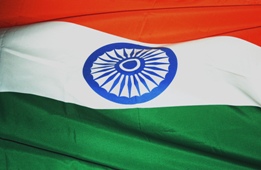 Its name sounds French, but the travel company Le Passage to India is actually an Indian entity, with a 50 per cent stake held by a German company, Tui.
Its name sounds French, but the travel company Le Passage to India is actually an Indian entity, with a 50 per cent stake held by a German company, Tui.
Already well-known for its inbound travel business, being selected to run the Commonwealth Games Travel office has been an additional feather in their cap, managing director Arjun Sharma told Ruchika Chitravanshi in an interview where he also spoke about tourism trends.
Edited excerpts:
What is the business proposition for LPTI in running the Games Travel Office?
It gives us huge visibility. The fact that you have been entrusted to handle India's most premier event adds to our credibility.
Of course, it was a very closely fought tender. The commercial value was probably less dominant. By July-August, we can have a clearer answer on the money we make. But, we are not looking at it from that point of view.
How is the response from tourists at the Games Travel Office?
At the moment, bookings are slow. Typically, the highest amount of interest normally comes from the families, well-wishers and friends of the athletes. Once a person is chosen to compete, they will all decide to come to that destination.
That selection process for all the Commonwealth countries has not happened yet. It is only from July and August that we will see the real traction of bookings coming to us. At this point, we are not qualified to say how many will materialise.
The past few months have seen some growth in foreign tourist arrivals. Do you think this is sustainable?
Last month, the incoming business to India grew by 38 per cent. There has been 70 per cent increase in the outbound (business).
It is not sustainable for two reasons -- first, a lot of pent-up demand for last year, which was subdued, is now coming into the fore.
A lot of the pricing is emerging from the time when euro and sterling were very strong. Going forward, people have realised they won't get a similar level of pricing.
Third, Europe, which is a principal market, had a severe winter last year, so it did not attract as many tourists last season.
How have your margins got affected because of the slowdown?
Margins have certainly got affected because in 2009, we had to turn the whole product strategy on its head. If a holiday was sold at Euro1,000 per person in Europe, there was no demand. We had to bring it down to Euro600-700 for a week for a 10-day holiday to India.
Which means we had to trade down the quality of the hotel slightly. The desire to travel has not gone. Margins had shrunk by 500 basis points, but it was made up in the volume.
Going forward, the challenge is that we are dealing with a weaker currency, so margins will be a little more hit. We are going to close 2009-10 with flat growth, which is very good in a market where everyone has suffered.
The turnover will be Rs 350-360 crore (Rs 3.5-3.6 billion). In 2010-11, we hope to have a turnover of over Rs 400 crore (Rs 4 billion).
What is the inbound-outbound (to India-from India business, respectively) breakup for LPTI?
In terms of turnover, it is 75:25. It should at least be equal in the next three years. That is the focus.
Inbound is your core strength. Why haven't you been able to replicate the same success in outbound travel?
We started a little later in outbound. We have a significant presence in the north India market. We have very good numbers on our meetings, incentives, conventions and events market.
India is one the most compelling markets to invest in for outbound. Tui, our German partner, has taken a conscious decision that from 2010-11 onwards, it will focus a lot on outbound. They see India, China and Brazil as their next focus area.
There is a perception of LPTI catering more to the high-end customer. Within the outbound, would you be targeting only the top-end segment?
There is the segment of the middle and the upper in the outbound. We would like to lay emphasis on that part of the business.
We would not look too much at the bottom end of the market. There is enough market in middle India which is aspirational and wants quality products at great value.
Some of our global products are extremely experiential -- renting your own water wayboat or a cruise tour to North Pole.
We bring a lot of proprietary products in the market.
Is there a plan to get into international alliances to expand your business?
We have an alliance in Nepal, we are soon going to announce one in Bhutan. We are looking at a strategic alliance in Dubai and the West Asia.
We are also going to have more source markets. We may also consider investing in tour operators overseas, where we can secure long-term trends and convert these into stronger opportunities.
What are the new opportunities you are planning to tap in the next two years?
We are planning to tap the gay and lesbian markets for inbound. It's a good $3.5-4 billion market globally, looking for exotic locations to visit.
It is a market that has to be approached in a different manner, as they have different sensitivities. It could be an interesting area to incubate and develop.
We are also very keen on education in tourism as a future opportunity. We are still in the planning stage.






